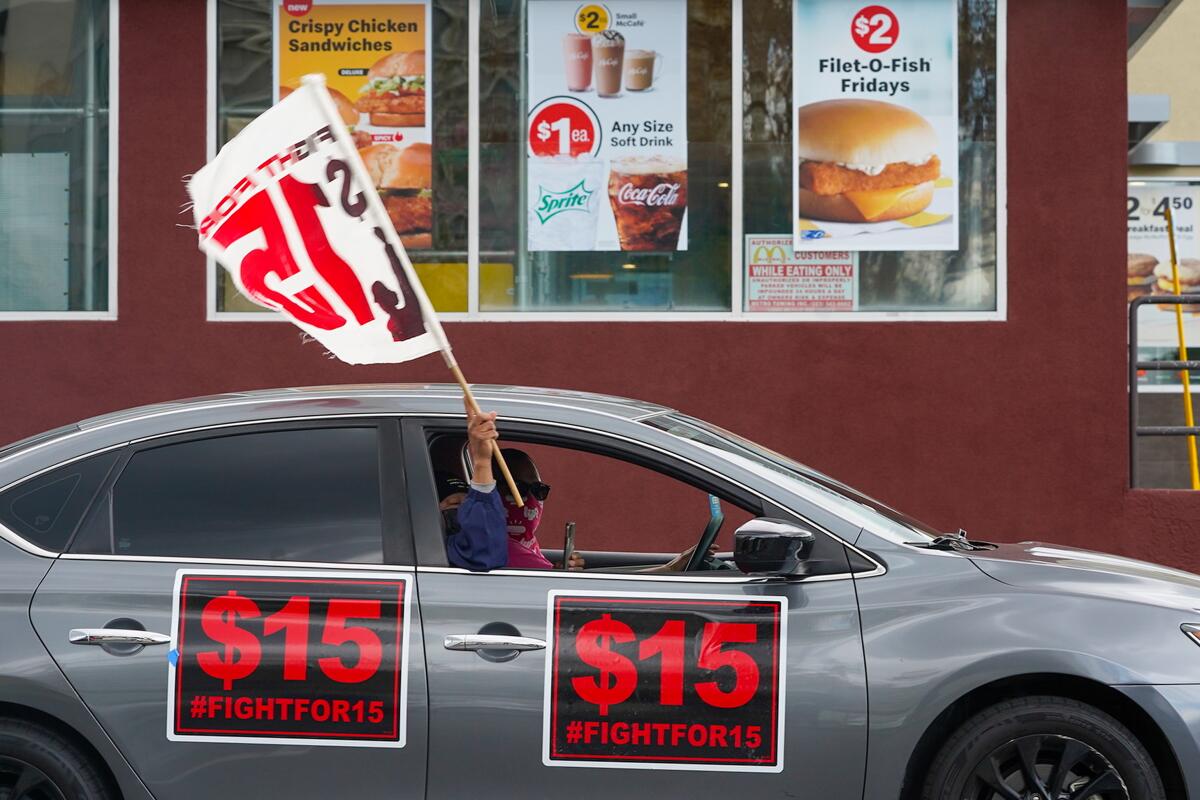Newsletter: The U.S. minimum wage is shockingly low

Good morning. It is Wednesday, Sept. 4. Here’s what’s happening in Opinion.
Did you know that the federal minimum wage is still $7.25 an hour? That’s right — just $290 for a 40-hour work week, before any withholding, or slightly more than $15,000 a year.
Compare that to California’s minimum wage of $16 an hour, which still seems pretty low considering how expensive it is to live in the Golden State.
When I started getting a paycheck, the federal minimum wage was $3.35 an hour. (California’s minimum wage was the same at the time; it didn’t diverge until 1988). Even for a teenager and in the 1980s, it wasn’t a windfall. Since then, the cost of living in the U.S. has increased something like a bazillion fold (seems like, anyhow).
The Times’ editorial board thinks the situation is pretty outrageous, even if more than half the states have higher minimum wages. “That is poverty pay, and an increase to the federal minimum wage is long overdue. It’s mind-boggling that Congress has gone so long without making even modest adjustments to help the lowest-paid workers. This is the longest stretch of time without an increase to the federal minimum wage since President Franklin D. Roosevelt signed the Fair Labor Standards Act in 1938, which established the right to a minimum wage.”
Indeed.
Dear non-voter: Will this postcard get you to the polls? In 2018, Cal State Northridge journalism professor Melissa Wall joined a group that sends notes — yes, on actual paper and mailed with an actual stamp! — to infrequent voters to persuade them to re-engage in elections. She started to wonder, just who were these people shirking their civic duty? She finally got an answer, but I’m not giving it away here.
Why Donald Trump’s politicking at Arlington National Cemetery should disgust every American. Columnist Robin Abcarian talked to a friend whose parents are buried at Arlington about the creepy campaign event last week. “My father was a conservative guy, but he would have thought Trump was a pig,” my friend told me.
Enjoying this newsletter? Consider subscribing to the Los Angeles Times
Your support helps us deliver the news that matters most. Become a subscriber.
Actors and writers celebrated last year’s labor victory. Now the cheering seems premature. The fall is traditionally a season of hope and optimism for Hollywood, with the debut of new TV shows. But former media critic Brian Lowry notes that this year, the feeling is different: “The grim reality, though, points to an industry in a painful state of flux, mirroring the digital transition that overwhelmed the newspaper industry.”
How students can address their backgrounds on college applications, even without affirmative action. The coming admissions cycle is stressful for all applicants, writes Sara Harberson, an author and the dean of admissions at Franklin & Marshall College. “Not all Black, Latino, Native American and Pacific Islander students know that writing about their race can give them a leg up. And overrepresented students may not know how to identify what makes them different from their peers.”
More from opinion
From our columnists
- Jackie Calmes: Should a five-time loser with grand juries be president?
- LZ Granderson: What would it mean for Americans if Doug Emhoff became ‘first gentleman’?
From guest contributors
- California’s electric bills are a problem. But cutting school funds isn’t the solution
- Why Black people are overrepresented among L.A.’s homeless population
From the Editorial Board
- Which political party is really ‘anti-kid’? Just look at recent child tax credit history
- Mostly empty mental hospital can help more people — without turning into a jail
Letters to the Editor
- I saw the VA’s failure in West L.A. firsthand. House homeless veterans now
- I was a rare female student at Caltech in the 1960s. It’s come a long way
- California needs nuclear energy in a time of climate crisis
- A Disney lagoon in the desert? What could be more stupid?
Stay in touch.
Enjoying this newsletter? Consider subscribing to our other newsletters and to The Times.
As always, you can share your feedback by emailing me at paul.thornton@latimes.com.
A cure for the common opinion
Get thought-provoking perspectives with our weekly newsletter.
You may occasionally receive promotional content from the Los Angeles Times.




